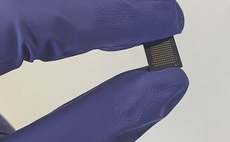Greenpeace research finds much work still needs to be done
Environmentally sound products should be promoted more heavily, says Greenpeace Lenovo, Nokia, Samsung and Toshiba were the main winners in this year's Green Electronics survey (PDF) from environ...
To continue reading this article...
Join Computing
- Unlimited access to real-time news, analysis and opinion from the technology industry
- Receive important and breaking news in our daily newsletter
- Be the first to hear about our events and awards programmes
- Join live member only interviews with IT leaders at the ‘IT Lounge’; your chance to ask your burning tech questions and have them answered
- Access to the Computing Delta hub providing market intelligence and research
- Receive our members-only newsletter with exclusive opinion pieces from senior IT Leaders






















